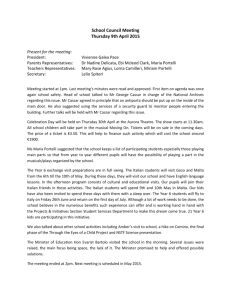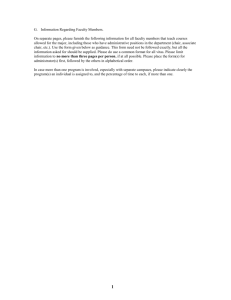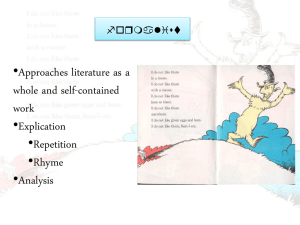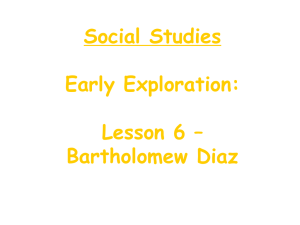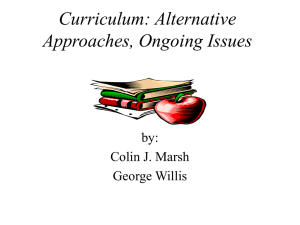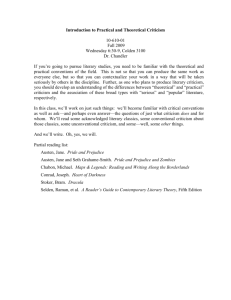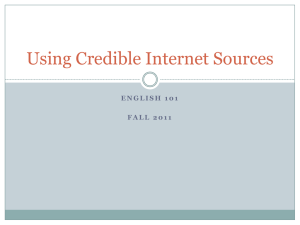Essay 2 - Importance of Oral History
advertisement
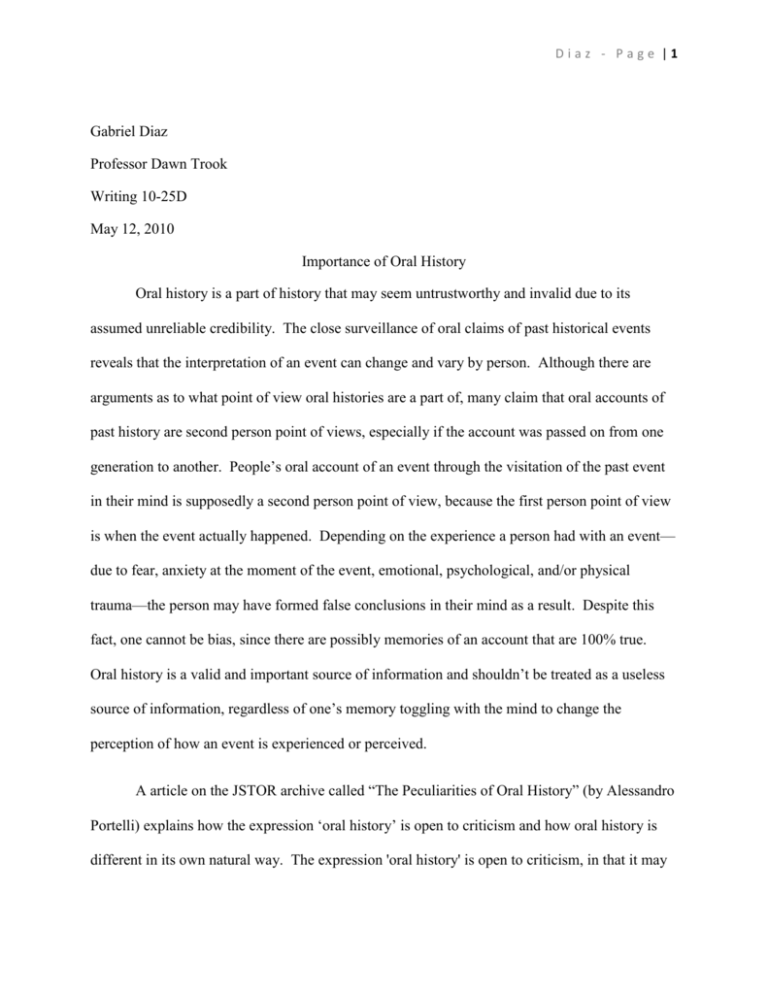
Diaz - Page |1 Gabriel Diaz Professor Dawn Trook Writing 10-25D May 12, 2010 Importance of Oral History Oral history is a part of history that may seem untrustworthy and invalid due to its assumed unreliable credibility. The close surveillance of oral claims of past historical events reveals that the interpretation of an event can change and vary by person. Although there are arguments as to what point of view oral histories are a part of, many claim that oral accounts of past history are second person point of views, especially if the account was passed on from one generation to another. People’s oral account of an event through the visitation of the past event in their mind is supposedly a second person point of view, because the first person point of view is when the event actually happened. Depending on the experience a person had with an event— due to fear, anxiety at the moment of the event, emotional, psychological, and/or physical trauma—the person may have formed false conclusions in their mind as a result. Despite this fact, one cannot be bias, since there are possibly memories of an account that are 100% true. Oral history is a valid and important source of information and shouldn’t be treated as a useless source of information, regardless of one’s memory toggling with the mind to change the perception of how an event is experienced or perceived. A article on the JSTOR archive called “The Peculiarities of Oral History” (by Alessandro Portelli) explains how the expression ‘oral history’ is open to criticism and how oral history is different in its own natural way. The expression 'oral history' is open to criticism, in that it may Diaz - Page |2 be taken to imply that historical research may be based entirely upon oral sources. Portelli goes into greater detail and provides examples of what oral history really is. Oral sources are sources of information given by the word of mouth. Many scholars believe that recorded tapes are credible, but only transcripts are published. “…expecting the transcript to replace the tape for scientific purposes is equivalent to doing art criticism on reproductions, or literary criticism on translations.” Portelli is simply saying that this is unjust to the system of recording history. The most literal translation is “hardly ever the best; a truly faithful translation always implies a certain amount of invention, and the same may be true for the transcription of oral sources.” Portelli exclaims here that what’s important about oral sources is how the mind’s creativity kicks into gear and gives a different perception or outlook of an event or memory. Portelli goes into even greater detail and talks about language itself, and how writing reduces language to “segmentary traits” that include letters, syllables, words, and phrases. The range of speech can also carry many ‘class connotations’ that are not reproducible in writing. Portelli also talks about how punctuation marks must be inserted to make transcripts readable, and that these marks are the “arbitrary addition of the transcriber.” Thus, the punctuation that the transcriber inputs is based on his own personal preference and his own interpretation of the source, which may or may not be the true meaning and description of the recorded tape being transcribed. Portelli believes that the ‘spoken word’ of people is more accurate than transcripts that are made out of them. Although it is a verbal account, it is still as accurate, if not more, than written accounts, since writing is transcribed by spoken word in the first place. Diaz - Page |3 Researchers continue to perform oral histories because they are still valid sources of information, since the word of mouth can be more accurate than the transcription of the same words. In her article, Sally Chandler claims that “oral historians are well aware that subjectivity-both our subjects' and our own--shapes the content and interpretation of our work. Chandler also states that “divergences of interpretation and understanding” are arising “within intergenerational communication.” Chandler is basically saying that oral historians recognize that there are various interpretations of events and how they are perceived. There are also differing and opposing interpretations and understanding of past events between generations, due to the continuous changing of language. These are very interesting points because they reveal more about the hitches involved with oral claims and their questionable validity when dealing with history books and our records of history. Oral history is used in many research projects because it is valuable and provides another source of information; however, the credibility of the oral sources obtained is up to the researcher. When a person doing research interviews a 90 year old man that claims to have participated in World War I, the interviewer must first believe that the man actually went to war. The claims the man makes are credible if the interviewer believes them to be. If the old man said that he dodged five bullets, it’s up to the interviewer if this ‘fact’ is credible or not. Of course, the truth can only be proven if the interviewer was at the actual scene of the event and saw the old man dodge five bullets. Again, oral history is based on perception by both the recorder and the speaker. The validity of the claims made and how they are discerned can shift from one side to another. Oral history is useful in research projects and in the recording of history. In regards to the subjective nature of memory, oral historians recognize that oral content can be shaped and Diaz - Page |4 interpreted in peculiar ways, such as in the World War I example in the previous paragraph. Although there are variances with the interpretation and understanding of past events, these differences are what make oral accounts valuable and credible. Diaz - Page |5 Bibliography Chandler, Sally. "Oral History Across Generations: Age, Generational Identity and Oral Testimony." Autumn. 2005. Web. 3 March. 2010 "Dictionary.com." 2010. 3 March. 2010 Portelli, Alessandro. "The Peculiarities of Oral History." Autumn. 1981. 3 March. 2010
